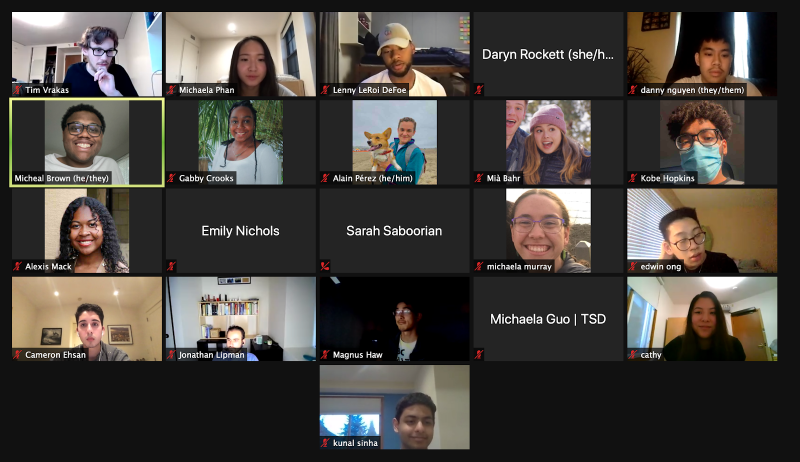The Undergraduate Senate passed a resolution urging the University to consider implementing a campus-wide carbon price to reduce institutional carbon emissions at its Monday meeting.
The Senate also clarified student government election guidelines regarding social media policy and discussed making the policy less restrictive leading up to general elections, which will take place on April 29 and 30. Primary voting for this year’s elections began Monday and will be available until midnight on Friday.
Carbon pricing seeks to reduce carbon emissions via applying a cost to carbon pollution. Students for a Sustainable Stanford leader Cathy Luo ’23 cited Yale’s implementation of a carbon price as an indicator of what it would look like in practice at Stanford.
The resolution also asks President Marc Tessier-Lavigne to sign a letter from higher education institution presidents that endorses carbon pricing and calls on the University to publicly support carbon pricing nationwide through a statement on Earth Day, April 22.
According to the resolution, 54 presidents of peer institutions have publicly endorsed carbon pricing and 14 student organizations and 50 Stanford faculty have signed a petition to urge President Marc Tessier-Lavigne to support carbon pricing.
Though Tessier-Lavigne has not issued a statement in favor of carbon pricing, the University announced plans last spring to design a new School of Sustainability focused on climate change and sustainability research.
Senator Danny Nguyen ’22 raised concerns about the actual impact of carbon pricing and how it could “possibly lead to harmful policies like cap and trade, which can actually allow companies to increase their revenue and not actually make a difference in lowering carbon emissions.” Nguyen said he was “not necessarily confident that Stanford will take the right route” with implementing the policy.
Luo said the resolution acknowledges this by stopping short of fully endorsing that Stanford adopt such a policy, instead recommending that the University consider implementing it.
“I think it’s definitely a strong ask for the administration,” Luo said. “Our resolution is asking them to do the research and to see if a carbon pricing system should be implemented on our campus.”
Luo added that while carbon pricing may not be the most efficient way to reduce emissions, the resolution’s primary goal is for Stanford to be “more conscientious of its own emissions and to make some sort of public statement on how we should reduce emissions collectively.
Election commissioner Edwin Ong ’23 also attended the meeting to clarify social media rules for candidates and general election plans. Currently, candidates cannot use existing personal accounts to promote campaign platforms for this year’s election and must create new accounts to do so, but they can promote their campaign accounts through personal social media.
Ong said that because no in-person campaigning is allowed, the policy is intended to prevent candidates with larger personal social media followings to gain an initial advantage.
“It’s a lot easier to make [the social media policy] more open than try to make it more restricted,” Ong said.
